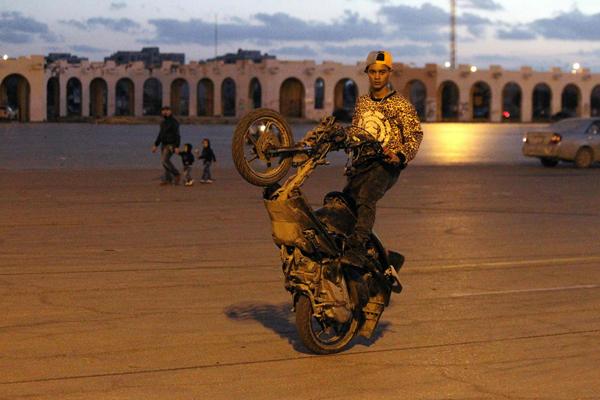You are here
Libya parliament rejects UN-backed unity government
By AFP - Jan 25,2016 - Last updated at Jan 25,2016
BENGHAZI, Libya — Libya's internationally recognised parliament voted Monday to reject a UN-backed unity government, in a major blow to international efforts to end the country's unrest.
The United Nations and Western diplomats have urged Libyans to back the unity government formed last week as a step toward ending the political chaos that has gripped the country since the 2011 ouster of longtime dictator Muammar Qadhafi.
Libya currently has two rival administrations and parliaments, with the internationally recognised authorities based in the east and a militia-backed authority holding power in Tripoli.
A national unity government headed by businessman Fayez Al Sarraj and comprising 32 ministers was formed last week, but the recognised parliament needs to approve it for it to start working.
"We voted against endorsing the government and ask... to be presented with another government," parliamentarian Ali Al Gaydi said.
Of the 104 lawmakers in attendance for the vote in eastern city Tobruk, 89 rejected the new government, he said.
Parliament member Al Saliheen Abdelnabbi said the government had been rejected because its Cabinet was too large.
He called for "a smaller government without this high number of ministries".
The unity government was formed under a UN-sponsored peace deal signed last month by less than half of the members of Libya's competing legislatures.
The accord must also be approved by the parliament but on Monday lawmakers voted for the removal of an article giving the unity government the power to approve top security and military positions.
Fears of Daesh influence
The parliament would hold a vote on ratifying the deal on Tuesday if the UN mission to Libya — which has been working on the deal for more than a year — scrapped the article, Gaydi said.
Parliamentarian Fahmy Tuwaty said many lawmakers are opposed to the deal over the article, which they fear will lead to powerful army chief General Khalifa Haftar losing his post.
The parliament's head Aguila Saleh and Haftar have criticised the UN-backed accord, which calls for a two-year transition period to end with parliamentary elections.
The head and members of the rival Tripoli-based General National Congress also oppose the deal.
While their support is not necessary for the unity government to start operating, they could prevent it from working out of the capital.
Prime minister-designate Sarraj, who has so far been operating out of Tunisia, arrived in Algeria for a visit on Monday as he continues to seek support from regional governments.
There was no immediate reaction from his government to the rejection.
Libya has been divided since a militia alliance including Islamists overran Tripoli in August 2014, causing the recognised administration to flee east.
The Daesh terror group has taken advantage of the turmoil to expand its influence in the country.
In recent weeks it launched attacks from its stronghold in the city of Sirte on facilities in the "oil crescent" along the country's northern coast.
Fears the extremists are establishing a new bastion on Europe's doorstep have added urgency to diplomatic efforts to bring together Libya's warring factions.
European Union foreign affairs chief Federica Mogherini earlier this month pledged to give Libya 100 million euros ($108 million) to battle Daesh as soon as the unity government came to power.
Related Articles
CAIRO — Libya's internationally recognised parliament will meet "in the coming weeks" to give its backing to a UN-backed unity government ai
TRIPOLI — Libya's unrecognised Islamist-backed parliament on Tuesday dismissed 10 lawmakers who signed a UN-brokered deal to set up a nation
BENGHAZI, Libya — Libya's internationally recognised parliament is expected to hold a vote of confidence Tuesday on a UN-backed national uni












